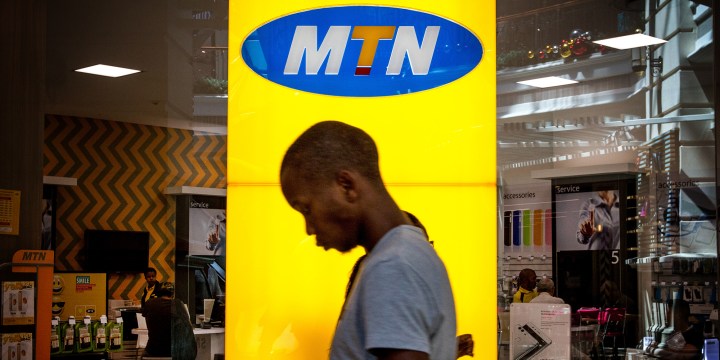COMPANIES
MTN spends R6.6bn to boost network resilience in the face of intensified Eskom blackouts

MTN aims to spend R10bn in 2023 and the early months of 2024, with the telecommunications company sacrificing higher profits to make its network reliable during Eskom blackouts. Its competitor, Vodacom, is spending R12bn on backup power measures.
MTN has spent R6.6-billion in recent months to improve its telecommunications network in South Africa and make it more resilient in the face of Eskom blackouts that have intensified to unprecedented levels in 2023.
MTN, South Africa’s second-largest telecommunications operator after Vodacom, had spent billions of rands in the first nine months of the year (ending 30 September 2023) and plans to spend an additional R2.5-billion over the next few months.
The company aims to spend R10-billion in 2023 and the early months of 2024 to make its network more efficient and resilient in the face of Eskom rolling blackouts.
MTN and other telecommunications operators have been forced to spend billions of rands on solar power, generators and lithium batteries to keep their cellphone towers running during Eskom blackouts.
The cellphone towers, which are critical for mobile and internet connectivity, depend on a stable electricity supply to function efficiently. In the 16 years that South Africa has been energy insecure, telecommunications operators have spent huge sums of money fitting cellphone towers with backup electricity measures, funds that could have been used to expand their operations and, in turn, improve earnings.
Vodacom has stated its intention to spend at least R12-billion a year on average on its network in South Africa over the next five years because it is also worried about intense Eskom blackouts, especially higher stages. Before blackouts worsened, Vodacom spent at least R8-billion every year, but has now increased its capital deployment programme.
According to Eskom, 2023 is shaping to be the worst year in terms of rolling blackouts, with 280 days of load shedding, which is substantially worse than the 65 days recorded in 2022.
Read more in Daily Maverick: Eskom posts record R23.9bn financial loss
MTN’s efforts to strengthen its network continue to knock its earnings because more money is being directed towards backup electricity measures to keep its network operational (especially during higher stages of blackouts), instead of growth-inducing measures.
To this end, in a trading update issued on Tuesday, MTN said its earnings before interest, taxes, depreciation, and amortisation (Ebitda) margin at its South African operation came in at 36.4% in the first nine months of the year, down from 39.5% in the same period a year ago.
An Ebitda margin is a measure of a company’s operating profit against the revenue that it generates from its operations. It is an important financial metric used by investors in the telecommunications industry to make a judgement call on a company’s profitability.
‘Better network experience’
Despite the short-term impact on its margins, MTN said the investment in its network resilience has already resulted in a “substantially better network experience” for its customers. This helped grow subscriber numbers by 2.6% to 36.8 million in South Africa, with most of the growth coming from post-paid subscribers, while prepaid was flat.
MTN’s financial performance was under pressure in South Africa, with the company’s service revenue (money it makes from things such as airtime usage and monthly access charges to its network) growing by 4.1% year on year in the third quarter to R31-billion. That was an acceleration from growth of 2.5% in the second quarter.
The investment in MTN’s network also enabled it to improve its average network availability — a measure of reliability in the face of disruptions, including blackouts — to above 95% in the nine months to the end of September 2023, from just above 90% three months earlier, the company said.
In a briefing with investors on the trading update, the company’s group CEO, Ralph Mupita, said investments into the network were starting to pay off, as it was now more available and reliable for its customers in South Africa.
MTN’s goal was to get to an average network availability rate of 99.7%. “As we improve network resilience, we should be able to meet this guidance we gave to the market,” Mupita said. DM













 Become an Insider
Become an Insider
Daily Maverick, please, please! Spare us all the the suffering of having to listen those boring and repetitive ads before we listen to any of these articles. They only serve to deter your readers from reading any article by those two laughing jokers! We really don’t want to hear the same repetitive as twenty times a day!